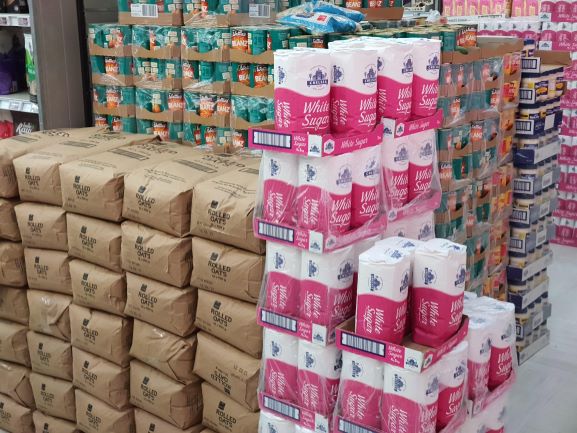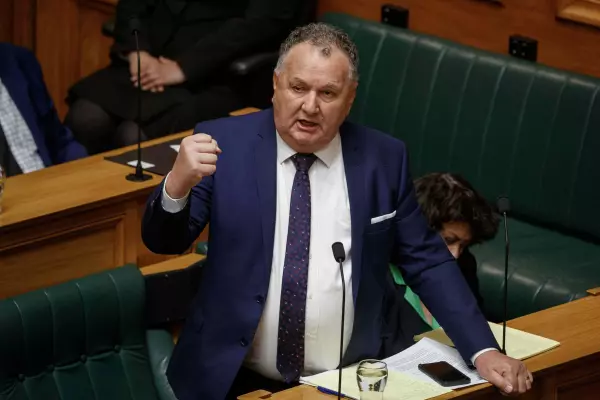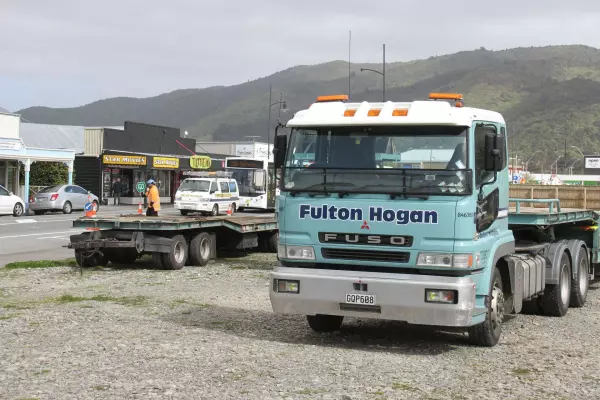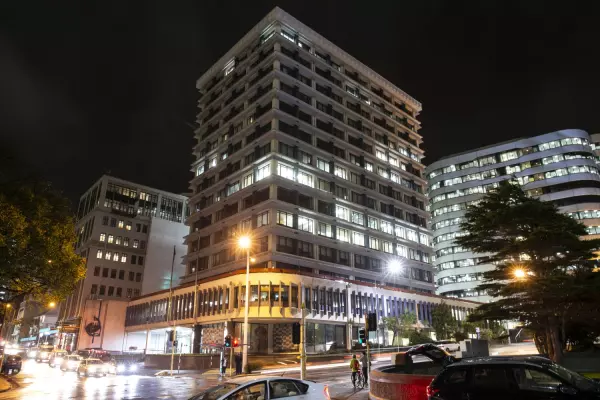One at a time at the dairy; NZ Steel and pulp mills curtailed

Officials working frantically on the definition of 'essential' service businesses issued a new round of definitions last night while trade union leaders lambasted reports that some employers are forcing employees to take annual and sick leave during the four-week national lockdown to fight the coronavirus.
The growing range of government edicts covering the lockdown, which kicks in at midnight tonight, is leading inevitably to patch protection, quibbling and attempted loophole-wrangling by businesses large and small, at the same time as hunters, surfers, golfers and other solitary sports enthusiasts try to justify why their activities are permissible at a time when physical isolation is required if the virus's spread is to be slowed enough to prevent a national epidemic.
The late evening MBIE advice reversed the confident claim made yesterday morning by The Warehouse that it would remain open as an essential service, while confirming that trade sales could continue at building supplies companies Placemakers, Mitre 10 and Bunnings, but not sales to the general public.
Dairies can keep selling food, as long as it wasn't made on the premises, but only if they let one customer into the store at a time.
“If any dairy breaks the rules, we will shut it down," said MBIE's deputy chief executive Paul Stocks. "If there is evidence of systemic abuse, we will remove them from the essential services list."
Only businesses that are "absolutely essential to ensure the necessities of life, like supermarkets and pharmacies, can open," he said.
"If in doubt, the premises should be closed."
That meant The Warehouse had to close its shops, although there was work still going on to decide whether "online ordering of non-food products for home delivery to see if this type of retail can be conducted safely", with updates to come.The Warehouse Group was placed on a trading halt yesterday after its shares surged 34.8 percent to $2.02 on the announcement it intended keeping 92 stores opening during the four-week self-isolation period by claiming essential services status.
Stationery supplies firm OfficeMax claimed in an email to customers from its chief executive Kevin Obern yesterday morning that its online sales would continue as "aspects of our supply chain are considered by government to be necessary to support New Zealand’s essential services we will remain open."
Prime Minister Jacinda Ardern responded to that suggestion by saying that simply because businesses had "contactless" sales processes, they could not assume they were "essential."
“There will be a number of examples that will not in my mind fall within those circumstances,” she said.
The MBIE ruling also affects major industrial plant, with New Zealand Steel ordered to close its Glenbrook refinery "in a way that allows for production to recommence easily. Pulp and paper plants are also to shut down non-essential elements "in a way that allows for production to recommence easily while maintaining essential production."
The country's single largest user of natural gas, the Methanex plant in Taranaki, is allowed to continue operating "but at a scale consistent with stability of gas supply."
The Tiwai Point aluminium smelter, already subject to an imminent decision on whether or not it will close permanently, is exempt from the shutdown order. Closing the smelter's molten aluminium potline production is a massive and costly operation, usually only reserved for periods of extreme electricity shortage.
Singled out to remain open are "businesses that are a critical part of the supply chain for essential services" such as chemical manufacturers waste water plants.
Not so favoured are Uber Eats and Deliver Easy, which deliver cooked food to order because of the risk of exposure to coronavirus in the food preparation process, although meals on wheels will be allowed to continue because it is a service to isolated and elderly people.
"Evidence overseas suggests the virus has been spread via poor food hygiene practices, so it’s a real risk we have to eliminate," said Stocks. “For clarity, every restaurant, cafe and bar must close all aspects of their operation, including delivery.
“Delivery of food that is not pre-cooked will be allowed under strict health conditions. Many New Zealanders now receive their food via a delivery company and are in effect no different to a supermarket delivery option."
“Most people are able to purchase alcohol at supermarkets. On that basis liquor stores are being treated as other non-essential retail outlets and must close. The only exception to this are Licencing Trust Areas where there is nowhere else to purchase alcohol. These stores must operate a ‘one-in one-out’ policy," MBIE said.
However, self-service laundries make the cut as essential, with physical distancing to be enforced between customers. Retirement villages are also classed as essential.
“Covid-19 alert level 4 is not business as usual and means there will be significant restrictions on what New Zealanders are able to purchase. However, these changes are essential to stop the spread of the virus," said Stocks. MBIE was "ready to change the list if necessary" in the event that other essential services were identified.
Meanwhile, the president of the Council of Trade Unions, Richard Wagstaff, accused some employers of "behaving badly" and others unlawfully by "compelling staff to use sick leave or annual leave to cover the level 4 isolation period.
"This not only breaches MBIE advice but is also in violation of the law. Such decisions about annual leave need to be made in consultation. Sick leave must only be used when someone, or their dependant, is sick."
While unsubstantiated, Wagstaff said the union was hearing reports of firms accessing wage subsidies from the government who were not paying the full subsidy through to their staff.
"It is also shocking that some employers are behaving opportunistically and self-proclaiming their business as an essential service," said Wagstaff. "This type of behaviour makes a mockery of the serious situation we face."
"It is important to note that most employers are following the law - most employers are doing the right thing and listening to the clear guidance of the government, MBIE, and Business New Zealand group" Wagstaff said.
Comments














